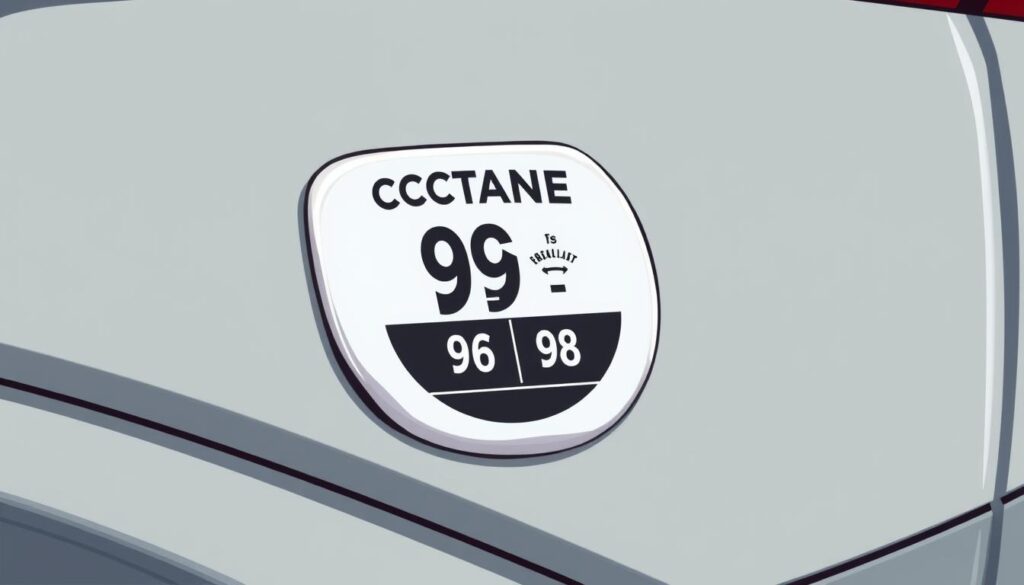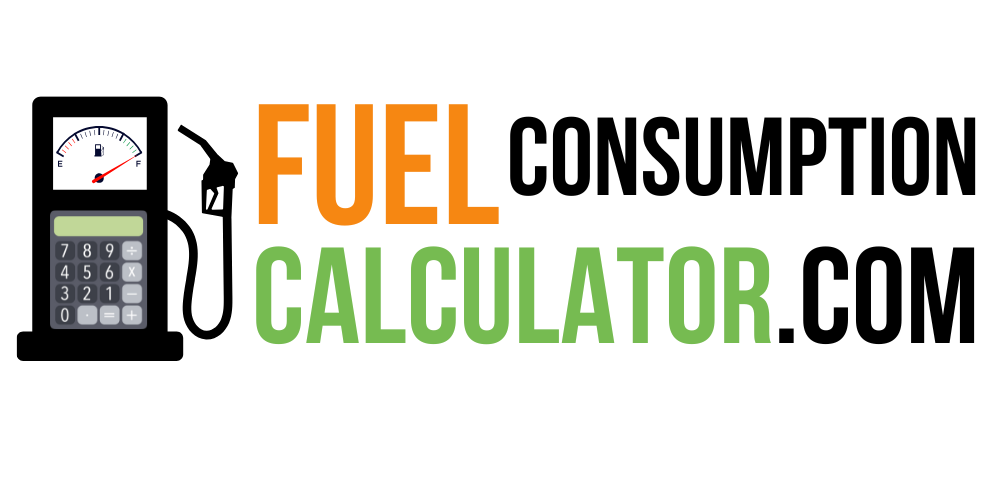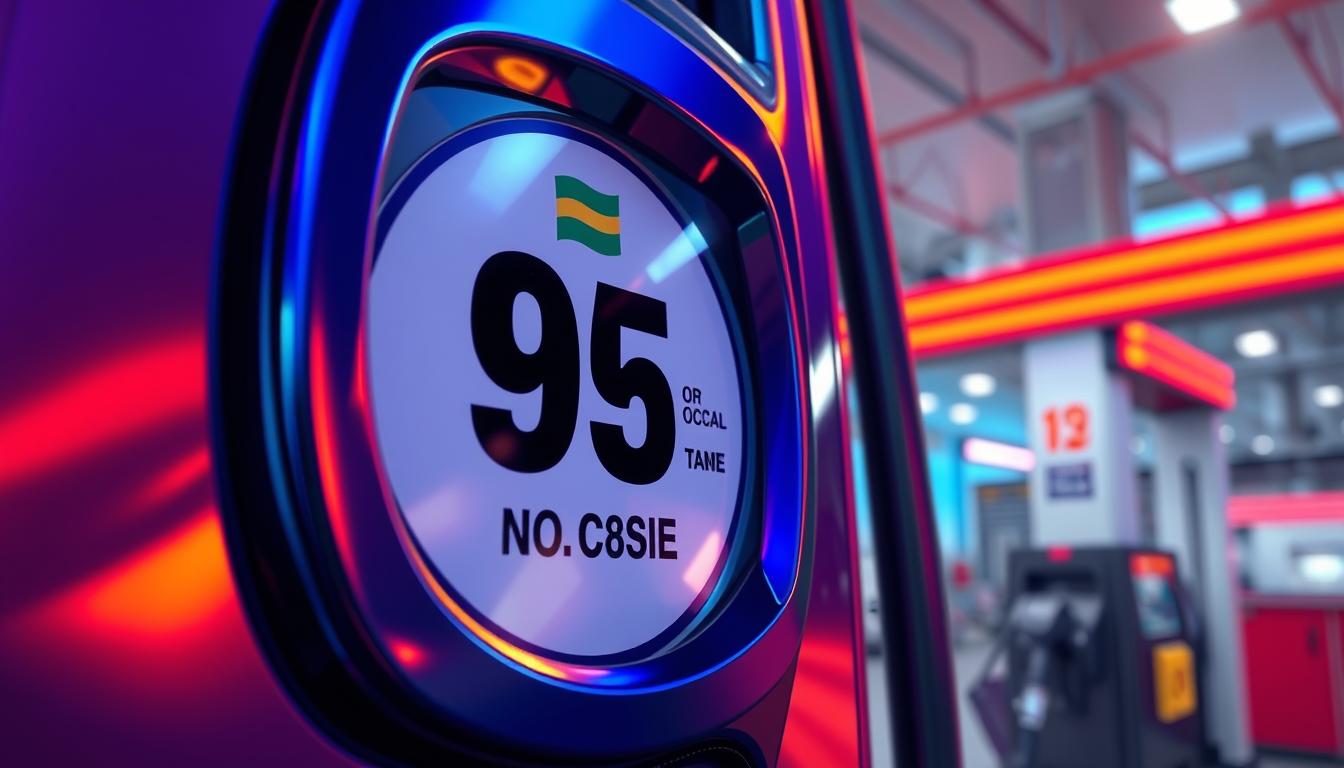Choosing the right fuel for your car is key. You can pick from 95 octane and 98 octane gasoline. The main difference is in their octane ratings. These ratings show how well the fuel resists engine knocking.
Using fuel with a lower octane rating than your car needs can hurt performance. It might make your car use more fuel and could damage the engine over time.
Contents
- 1 Understanding the Difference Between 95 and 98 Octane Fuel
- 2 Potential Effects of Using 95 Octane Fuel in a Car Requiring 98
- 3 What Happens If I Use 95 Octane Fuel in a Car That Recommends 98?
- 4 Identifying the Recommended Fuel Type for Your Vehicle
- 5 Fuel Efficiency and Cost Considerations
- 6 Source Links
Key Takeaways
- Using 95 octane fuel in a car that requires 98 octane can result in reduced engine performance and efficiency.
- Lower octane fuel can cause engine knocking, which can lead to long-term engine damage if not addressed.
- Following the fuel recommendations in your owner’s manual is important for maintaining optimal engine performance and protecting your investment.
- In some cases, using a higher octane fuel than recommended may not provide any additional benefits, so it’s important to match the fuel to the engine’s specifications.
- Fuel efficiency and cost considerations should also be factored in when choosing the right fuel for your vehicle.
Understanding the Difference Between 95 and 98 Octane Fuel
Octane Rating and Detonation Resistance
The octane rating of fuel is key to knowing if it’s right for your car. It shows how well the fuel resists early ignition, known as “knocking” or “detonation.” Higher octane fuels, like 98 octane, handle more compression before igniting. This makes them good for engines with high compression ratios.
On the other hand, 95 octane fuel can’t handle as much detonation. It’s best for engines with lower compression ratios. Using the wrong fuel can cause your car to run poorly, waste fuel, and even harm your engine over time.
| Fuel Octane Rating | Detonation Resistance | Suitable for Engines With |
|---|---|---|
| 98 Octane | Higher | Higher Compression Ratios |
| 95 Octane | Lower | Lower Compression Ratios |
Knowing about octane ratings and your engine’s compression ratio is key for the best performance and fuel use. Choosing the right fuel for your car stops engine knocking and premature ignition. This can also make your engine last longer.
“The octane appetite of modern vehicles has been analyzed to understand the impact of different octane levels on vehicle performance.”
Potential Effects of Using 95 Octane Fuel in a Car Requiring 98
Using 95 octane fuel in a car meant for 98 octane can hurt your engine’s performance. The 95 fuel’s lower octane rating may cause early detonation, or “engine knock,” in the engine. This can make your car lose power, use more fuel, and damage important engine parts like pistons and cylinder walls over time.
New cars with high-compression engines, especially turbocharged ones, are at risk. These engines work best with 98 octane fuel, which helps prevent knock and ensures the best ignition timing. Lower octane fuel can make the engine’s control system adjust the ignition timing. This hurts both power and fuel economy.
Cars with petrol particulate filters (PPFs) also need the higher octane fuel to avoid engine and exhaust system damage. Lower octane can cause more pre-ignition, which could lead to engine failure if not fixed.
“Using the recommended 98 octane fuel is critical for maintaining peak engine performance and protecting your investment in a high-tech, turbocharged vehicle.”
While 95 octane won’t break your car right away, it’s not the best choice. Using a lower octane fuel than what the maker suggests can cause slow engine wear, less fuel efficiency, and less engine performance over time.

What Happens If I Use 95 Octane Fuel in a Car That Recommends 98?
Using 95 octane fuel in a car meant for 98 octane can cause problems. The 95 fuel’s lower octane rating might lead to engine knocking. This can make the engine lose power, use more fuel, and even damage it over time.
Using a lower octane fuel than what the maker suggests is not good. The engine works best with the fuel it’s made for. Lower octane can strain the engine’s parts.
One big worry with lower octane fuel in high-performance engines is engine knock. This happens when the fuel mix in the engine ignites too soon. It causes the engine to lose power and efficiency, and can even harm it badly if not fixed.
| Fuel Type | Octane Rating | Typical Use |
|---|---|---|
| Premium | 91 or 93 | High-performance vehicles, turbocharged engines |
| Regular | 87 | Most standard passenger vehicles |
| Midgrade | 88-90 | Vehicles that can use either regular or premium |
To avoid problems with fuel, always use what the maker suggests. This keeps your engine running well, saves fuel, and keeps it healthy for a long time.
“Consistently using a lower octane fuel than recommended can lead to engine damage over time, as the engine may experience premature detonation and increased wear on internal components.”
Identifying the Recommended Fuel Type for Your Vehicle
Using the right fuel is key for your vehicle. Check the owner’s manual and the fuel door sticker for the recommended octane rating. These sources tell you what fuel your car needs.
Checking the Owner’s Manual and Fuel Door Sticker
The owner’s manual is your best guide for fuel needs. It will say what octane rating your car should use, usually 95 or 98. Many cars also have a fuel door sticker with the same info.
It’s vital to use the recommended fuel to keep your engine running well. Using lower octane can cause engine knocking or lower fuel efficiency. Using higher octane won’t help your car run better.
| Fuel Type | Octane Rating | Typical Use |
|---|---|---|
| Unleaded 95 | 95 RON | Most common fuel type, suitable for a wide range of vehicles |
| Unleaded 98 | 98 RON | Recommended for high-performance or high-compression engines |
| Premium | 95-98 RON | Contains additional additives for improved engine performance and protection |
Follow the fuel advice in your owner’s manual and check the fuel door sticker. This way, you make sure your car runs well and avoid problems from using the wrong fuel.

Fuel Efficiency and Cost Considerations
Using a higher octane fuel than your car needs won’t boost engine performance or fuel efficiency. But, using a lower octane fuel can hurt your fuel economy and increase long-term repair costs. The difference in price between 95 and 98 octane fuel might seem small, but it could lead to more problems later.
The octane rating shows how well a fuel resists premature ignition, or “knocking,” in the engine. Cars with more powerful engines or turbochargers often need higher octane fuels like 98 RON. If you use a lower octane fuel, you might see less power, lower efficiency, and engine damage.
Choosing between higher or lower octane fuel should depend on what your car maker suggests and what you think about the benefits and costs. Even though saving money with lower octane fuel looks good at first, it could cost you more in the long run. Your car’s performance and upkeep could suffer.
Source Links
- https://www.gr-yaris.co.uk/threads/petrol-98-or-95.20/page-4 – Petrol 98 or 95?
- https://forum.miata.net/vb/showthread.php?t=585452 – Wich octane for European NDs?
- https://www.fueleconomy.gov/feg/octane.shtml – Select the right octane fuel for your vehicle!
- https://www.r6-forum.com/threads/98-octane-or-95.152793/ – 98 octane or 95??
- https://www.carexpert.com.au/car-news/premium-unleaded-whats-the-difference – Fuel ratings explained: 91, 95, 98 RON and E10
- https://autoexpert.com.au/posts/the-ultimate-guide-to-octane-ratings-the-truth – The Ultimate Guide to Fuel and Octane Ratings — Auto Expert John Cadogan
- https://www.thedrive.com/cars-101/36538/what-happens-when-you-put-regular-gas-in-a-premium-car – What Happens If You Use Regular Gas Instead of Premium?
- https://engines.honda.com/support-and-service/fuel-recommendations – Honda Engines | Fuel Recommendations
- https://blog.kroftools.com/en/petrol-95-vs-98-differences-and-which-one-to-choose/ – Petrol 95 vs 98: Differences and Which One to Choose
- https://www.insightcentral.net/threads/97-98-99-octane-fuel.19936/ – 97/98/99 octane fuel
- https://westechperformance.com/2022/08/12/the-huge-upside-of-filling-up-your-vehicle-with-premium-fuel/ – The Huge Upside of Filling Up Your Vehicle with Premium Fuel | Westech Performance Group
- https://auto.howstuffworks.com/fuel-efficiency/fuel-consumption/question90.htm – What Is Octane and How Does It Work?
- https://hawthorneautosquare.com/how-do-i-know-what-gas-is-best-for-my-car/ – How Do I Know What Gas Is Best for My Car?

Hi, I’m Sufiyan, the developer behind this platform. I created FuelConsumptionCalculator.com to simplify fuel tracking for everyone — because understanding your vehicle shouldn’t require a degree in mechanics. I’m always working on adding more tools and content to make this site even more useful

